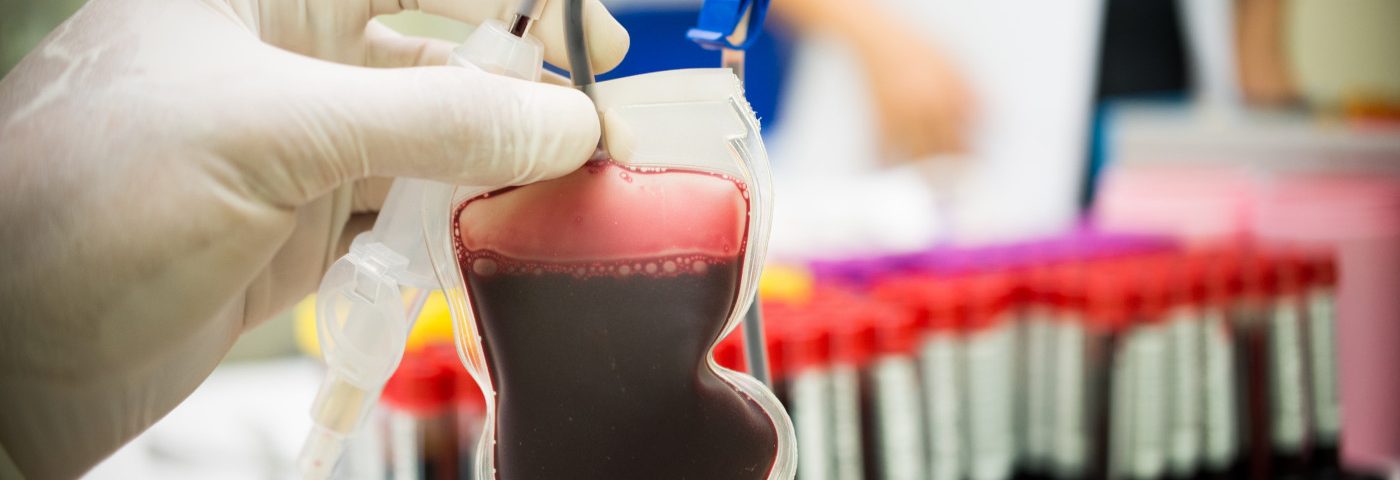JSP191, an investigational therapy by Jasper Therapeutics, showed promising efficacy as a conditioning agent to prepare older patients with acute myeloid leukemia (AML) or myelodysplastic syndromes (MDS) for a stem cell transplant.
These are the early findings of an ongoing open-label Phase 1 trial, called JSP-CP-003 (NCT04429191), which is currently investigating the safety, tolerability, and efficacy of adding JSP191 to a standard conditioning regimen for older adults with AML or MDS before they undergo a stem cell transplant in the U.S.
Trial findings were presented by Lori Muffly, MD, assistant professor at Stanford Medicine and the study’s lead investigator, in a scientific poster, titled “Phase 1 Study of JSP191, an Anti-CD117 Monoclonal Antibody, with Low Dose Irradiation and Fludarabine in Older Adults with MRD-Positive AML/MDS Undergoing Allogeneic HCT,” at the 2021 Transplantation & Cellular Therapy Meetings, held online Feb. 8–12.
JSP191 is an antibody designed to bind to CD117, a protein receptor normally found on the surface of blood cell progenitors, also known as hematopoietic stem cells. This receptor plays a key role in the survival of these stem cells. By preventing CD117 from interacting with another molecule, called stem cell factor, JSP191 is thought to prevent blood cell precursors from receiving signals they need to survive, causing them to eventually die.
Due to its ability to trigger the death of blood cell progenitors, JSP191 is now being investigated as a potential conditioning agent for patients awaiting stem cell transplantation. This is because before a patient can receive healthy blood cell precursors from a donor, their own blood cell progenitors must first be eliminated from their bone marrow.
Before undergoing a bone marrow transplant, patients typically must complete a conditioning regimen of radiation and chemotherapy to reset and prepare their bone marrow to receive new blood cell progenitors.
“We designed JSP191 to be given as outpatient conditioning and to have both the efficacy and safety profile required for use in newborn patients and older patients for successful outcomes,” Wendy Pang, MD, PhD, executive director of research and translational medicine at Jasper, said in a press release.
During the JSP-CP-003 trial, a conditioning regimen consisting of a single JSP191 dose and low-dose radiation and the chemo agent fludarabine is given to AML and MDS patients, ages 65–74, who are awaiting stem cell transplant.
Only patients who are not eligible to receive a myeloablative regimen — which uses high-intensity chemo and radiation therapy — can participate in the study.
The trial also aims to determine the therapy’s efficacy at promoting the engraftment of donor blood cell precursors and eliminate residual disease (measurable residual disease or MRD).
Data from the first six participants who received JSP191 showed that, in five of them, donor blood cell progenitors made up at least 95% of all blood cell precursors populating their bone marrow 28 days after the transplant. In three of them, this level of engraftment was observed up until day 90.
Additionally, in the first 28 days following the transplant, three of the five eligible patients for response analyses showed no signs of residual disease, while the other two had a significant reduction in MRD.
The addition of JSP191 to low-dose radiation and chemo was also found to be safe and well-tolerated. No treatment-related serious side effects or dose-limiting toxicity events were reported.
“These early clinical results are the first to demonstrate that JSP191 administered in combination with a standard non-myeloablative regimen of low-dose radiation and fludarabine is well tolerated and can clear measurable residual disease in older adults with MDS or AML undergoing hematopoietic cell transplantation — a patient population with historically few options,” said Kevin N. Heller, MD, executive vice president of research and development at Jasper.
“JSP191, a well-tolerated biologic conditioning agent that targets and depletes both normal hematopoietic stem cells and those that initiate MDS and AML, has the potential to be a curative option for these patients,” Heller added.
JSP191 is also being tested as a standalone conditioning agent in another Phase 1 trial (NCT02963064) enrolling patients with severe combined immunodeficiency who are undergoing stem cell transplantation.
“We are excited to continue our research in MDS/AML, with plans for an expanded study,” Pang said. “We are evaluating JSP191, the only antibody of its kind, in two ongoing clinical studies and are encouraged by the positive clinical data seen to date.”

